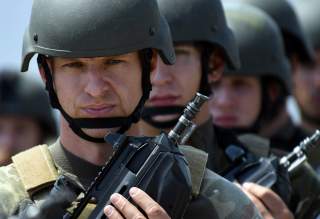Collective Security Is America's Only Hope
Given that U.S. primacy cannot endure, and that accommodating Russia and China is unwise, Washington should work with Moscow, Beijing and others to promote the establishment of functioning collective-security regimes in Europe and Asia.
Many will dismiss this research effort outrightly. In their recent War on the Rocks essay, “Navigating Great Power Rivalry in the 21st Century,” Michael Mazarr and Hal Brands explain that scholarship suggests that there are preconditions for collective-security regimes to emerge and endure, including a stable configuration of power among the leading members of the international system, a willingness to respect a shared set of rules and some ideological commonality. The existence of a threat, a looming threat, or the fresh memory of a great cataclysm is also critical in helping to form collective-security regimes. Because these preconditions do not currently exist, Mazarr and Brands conclude that aiming for the establishment of such regimes with Russia and China would be a stillborn project.
That may be true in the short term, but it is overlooking the potential to socialize Russia and China into workable regimes over the longer term. During the Cold War, Herman Kahn pointed out that it was important to consider the period as a “fifty-year problem” because urgent issues of the moment look different in a longer perspective. Back then, the immediate U.S. challenge was to contain the Soviets. Over a fifty-year period, however, at stake was upholding U.S. values and reducing nuclear dangers to the international order that Washington had set out to defend. A similar approach should be adopted in the current security environment. Today requires more deterrence of Moscow and Beijing. The goal over the long term, however, is to rebuild and manage the European and Asian security orders with them (and other regional states), not against them. This is critical, not only because the level of integration and interdependence among major and regional powers is at a historic high, but also because they all face challenges of mutual concern. The sooner Washington recognizes this, the better.
David Santoro is director and senior fellow of nuclear policy programs at the Pacific Forum, Center for Strategic and International Studies. You can follow him on Twitter at @DavidSantoro1.
Image: Reuters
Recommended:
Why North Korea's Air Force is Total Junk
Why Doesn't America Kill Kim Jong Un?

